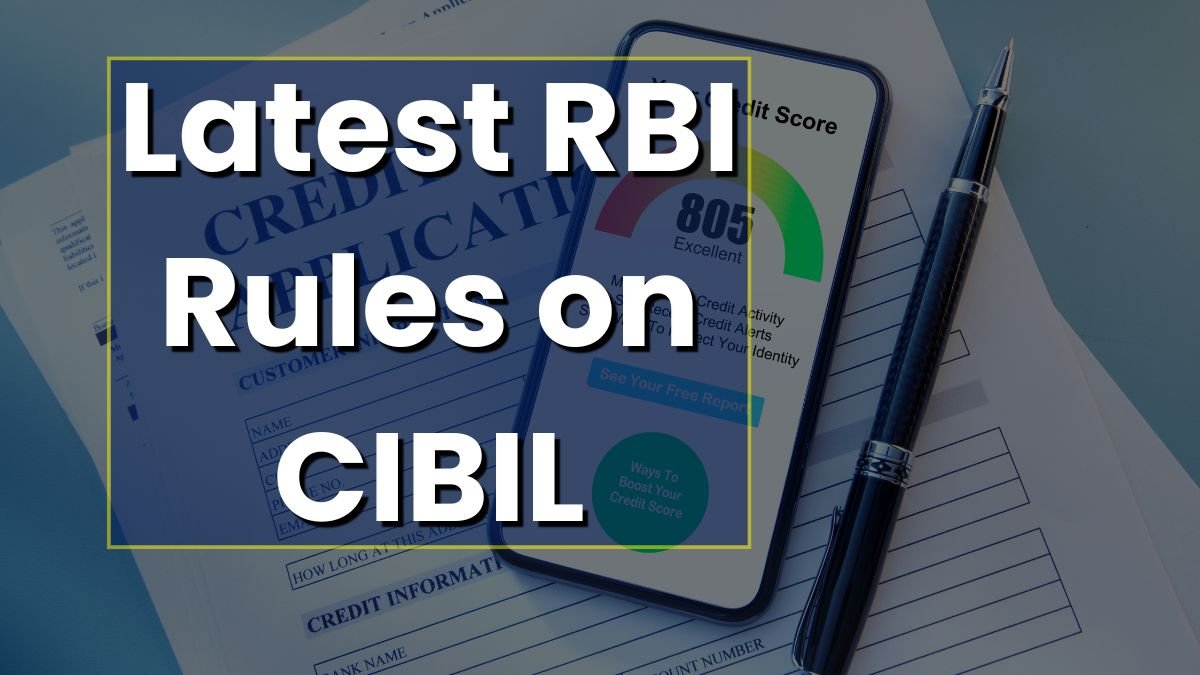Taking a loan and repaying it on time usually creates an impression of good creditworthiness in your CIBIL score based on your payment behavior. It is advisable to keep your credit score updated on time, as it is necessary for future loans and interest rates.
Lenders have faced significant delays even after fully closing loans in CIBIL score updates 2025, and there have been many difficulties applying for new credit. In relation to these, the RBI has issued new guidelines for faster and more transparent credit score updates.
Importance of Your CIBIL Score
Before approving your loan application, banks and other financial institutions usually check your CIBIL score to determine your credit risk. A higher score increases your chances of approval at market-interest rates, while a lower score is likely to cause rejection or more expensive loan options.
This score, which is generally used by lenders, must therefore be correct and up-to-date. A delay in the maintenance of an up-to-date status will be disappointing for a borrower who has fairly recently cleared dues, but it is still displayed in an outdated manner for credit applications.
New RBI Rules to Update CIBIL Scores Faster
To facilitate things, the RBI has demanded the following changes:
1. Monthly Reporting by Banks & Financial Institutions
- All lenders must now provide repayment information about borrowers to Credit Information Companies (CICs) every month.
- This means that your credit history will now be updated frequently.
2. CIBIL Score Updates every 15 Days
- Previously, such reporting took place at their convenience and, thus, the intervals differed from one credit bureau to another.
- Under the new rules introduced by the RBI, your CIBIL score will now be refreshed every 15 days to ensure a speedy reflection of repaid loans.
This Is How It Benefits Borrowers and Lenders
For Borrowers:
- If you have recently repaid a loan, your improved credit behavior will reflect sooner.
- Fast updates mean that you can be able to apply for new loans without the hassle of using out-of-date scores.
- With a higher score, you can easily get loans at a lower interest rate.
For Banks and Lenders:
- The lenders will be able to speed up the decisions based on the available current information.
- The risk of lending outdated credit information would be minimized.
Credit Score vs. Credit Report: What Difference do they hold?
Credit Score (CIBIL Score):
This is the three-digit number (300-900) that calculates how good one is from the point of view of credit. It is related to the repayment history, credit utilization, and loan inquiries.
Credit Report:
- Past and Existing Loans
- Repayment Timelines
- Defaults (If Any)
- Credit Card Usage
This is the report from which your CIBIL score is derived.
What is Good and What is Bad CIBIL Score?
- 750 and above → Excellent (Loans easier to secure and at lower interest rates)
- 650-749 → Fair (Loans possible, but at slightly higher rates)
- Less than 650 → Poor (Low likelihood for loans, if approved, at much higher interest rates)


